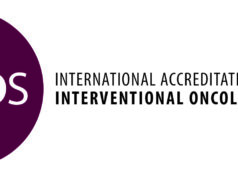
Selective internal radiation therapy (SIRT) has been available since December 2013 to a defined group of patients with liver metastases in England on the National Health Service (NHS) via a special Commissioning through Evaluation scheme from NHS England. However, NHS England has now decided to stop funding SIRT at the end of March 2017 while it analyses the data obtained so far.
The British Society of Interventional Radiology (BSIR) and many interventional oncologists believe that this decision is unfair to patients who will be unable to access SIRT on the NHS during the data analysis period and fear that the hiatus might result in the de-skilling of SIRT multidisciplinary teams that include interventional radiologists. There is also growing concern that referral networks for the treatment could be lost in the analysis period when SIRT will be unavailable to patients.
Materials available at the BSIR annual meeting (15–17 November, Manchester, UK) note that according to the Health Minister, the data analysis, which includes a cost-effectiveness analysis, “could take up to two years”.
Many interventional radiologists maintain that there is already substantial evidence supporting the benefits of SIRT in patients with liver metastases from bowel cancer and that the planned gap in provision is unfair to patients. “In the light of the evidence, a conclusion that NHS patients should not have access to SIRT from April 2017 on the basis of insufficient evidence appears inconsistent with the published studies,” the material from BSIR further adds.
Interventional oncologists emphasise that it will cost the NHS both in terms of time and money to decommission services and then re-skill clinicians at a later date, if SIRT funding is lost for 12–18 months while the data is analysed. All these factors have led to the BSIR asking NHS England, as a matter of urgency, to allow for continuity of service provision from April 2017 onwards.
Brian Stedman, consultant interventional radiologist at University Hospital of Southampton, Southampton, UK, and chair of the BSIR communications committee told Interventional News: “SIRT is a complex treatment that needs collaboration between interventional radiology and nuclear medicine and centres need to invest in equipment and staffing to get this treatment underway. It took about a year to get the 10 centres who were delivering SIRT treatments in England up and running. Over the last 18 months, most of these have been running at the level of activity that we have been expecting. Having developed this service and expertise, our anxiety is that we are going to be left with no funding mechanism for these patients. If there is an 18-month hiatus, we are going to lose the skill base in these 10 centres. If there is a positive analysis from the data, we will then have to re-skill these centres and this will be at a significant cost to the NHS. We are seeking some form of interim funding so that patients are not disadvantaged, and skills are maintained while the data is analysed.”
Stedman added: “In this scenario, we are talking about patients who have failed two or more lines of chemotherapy and these patients are looking at few, or no, treatment options despite having a good quality of life. These patients are not going to be cured by SIRT, but our aim is to prolong life and maintain quality of life. I strongly believe that liver-directed therapies have a real benefit for our patients. Unlike with drugs, when it comes to innovative device technologies, we are struggling to get clear funding pathways. Prior to the Commissioning through Evaluation scheme, SIRT was regionally available through the Cancer Drugs Fund. My issue is with the slightly ad hoc funding of these technologies and this is a difficulty that we need to address as an interventional oncology community.”
In June 2013, NHS England agreed to fund 660 NHS patients who had failed, or were intolerant to chemotherapy, to receive SIRT for the treatment of liver metastases from bowel cancer and biliary tract tumours in the liver at 10 NHS hospitals in England. The funding is scheduled to stop after an estimated 520 patients will have been treated.













